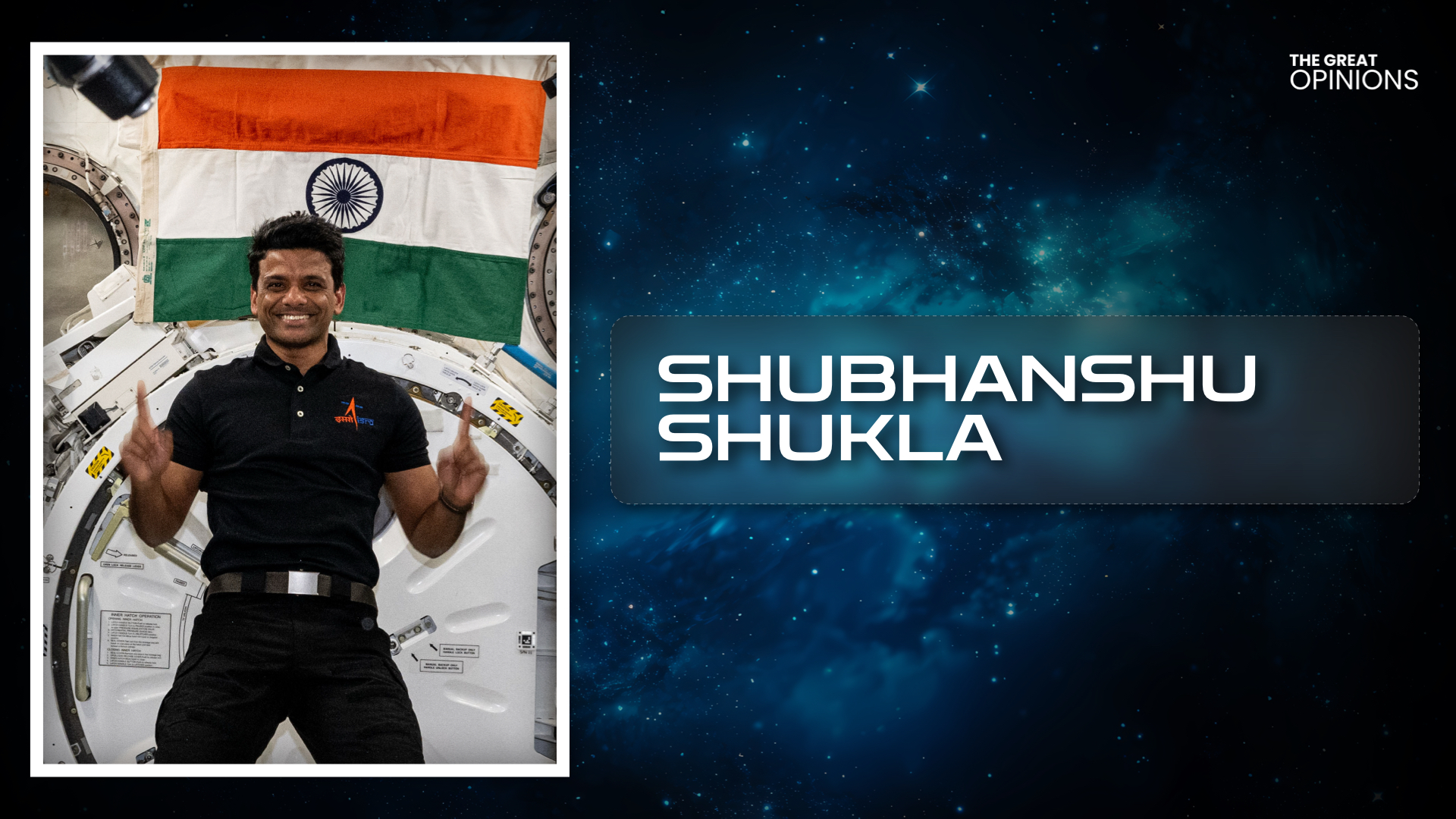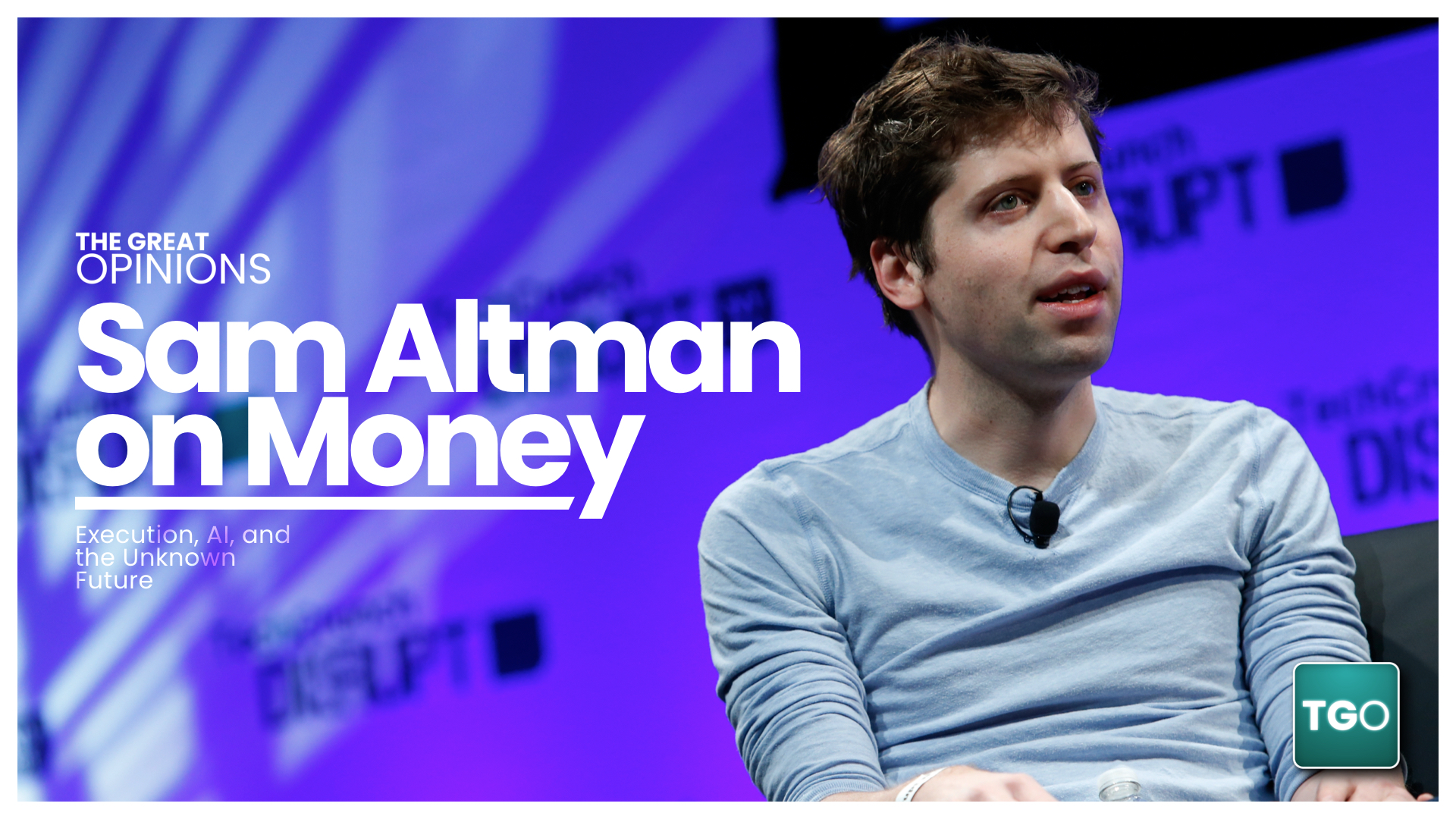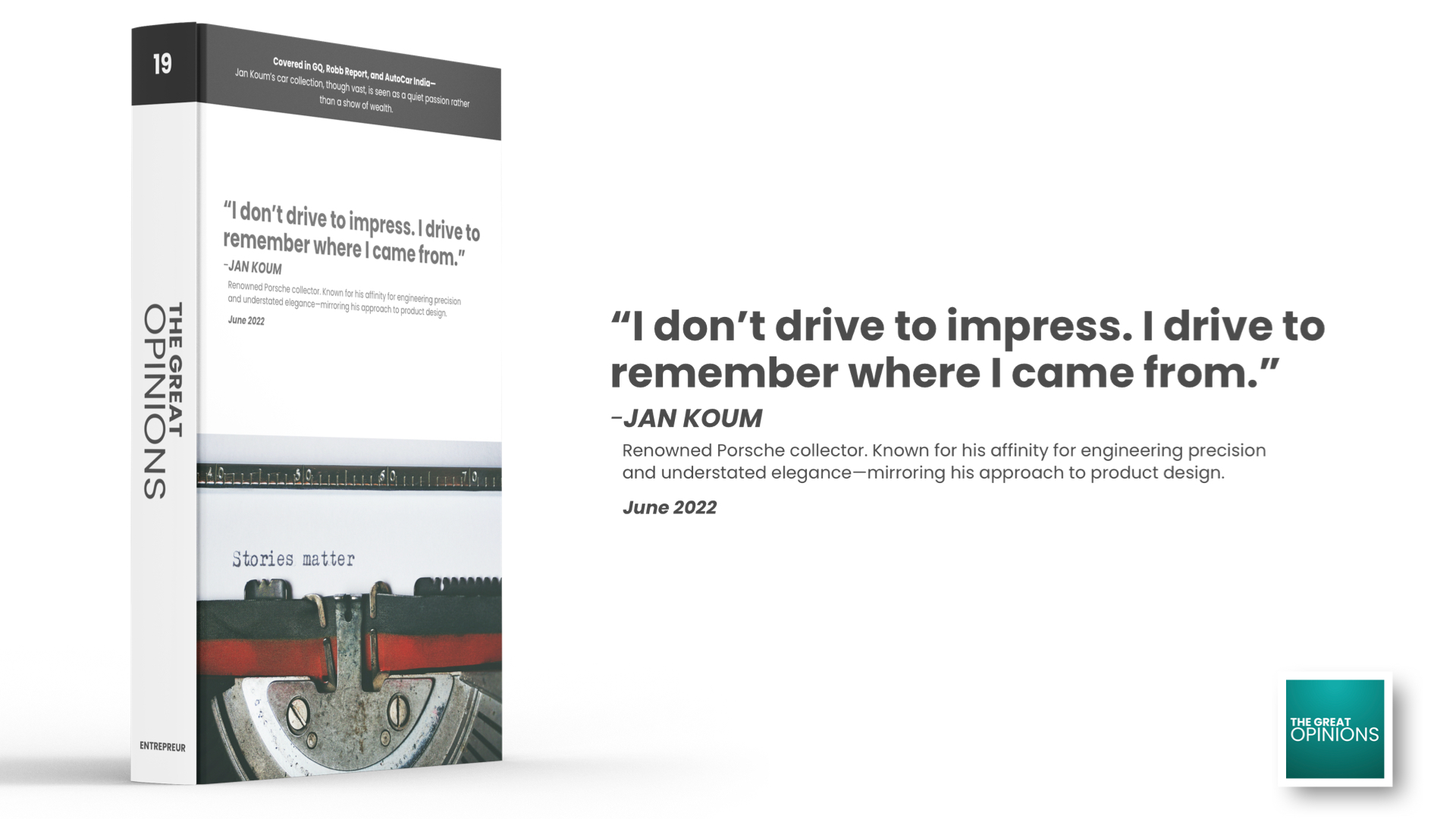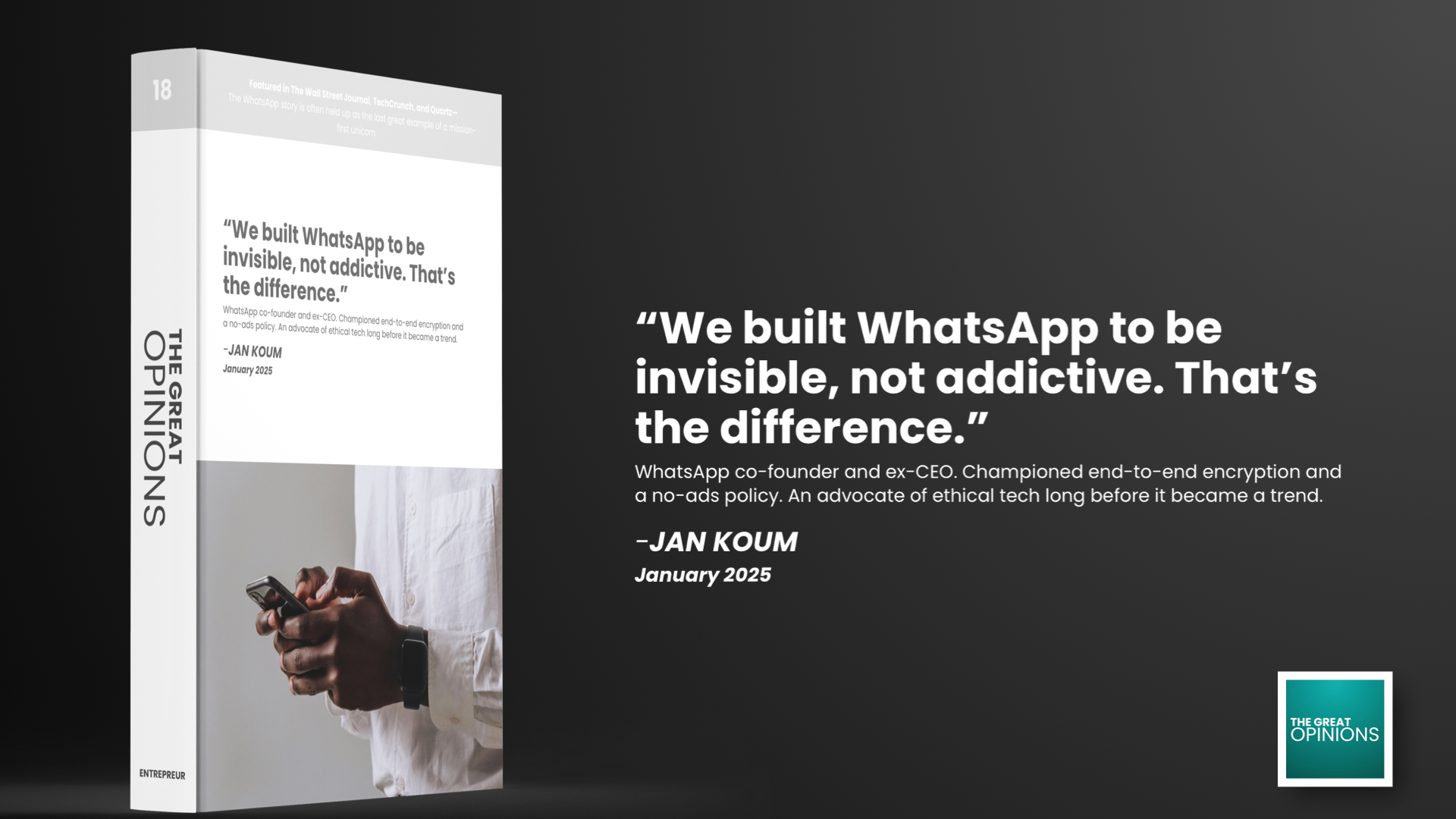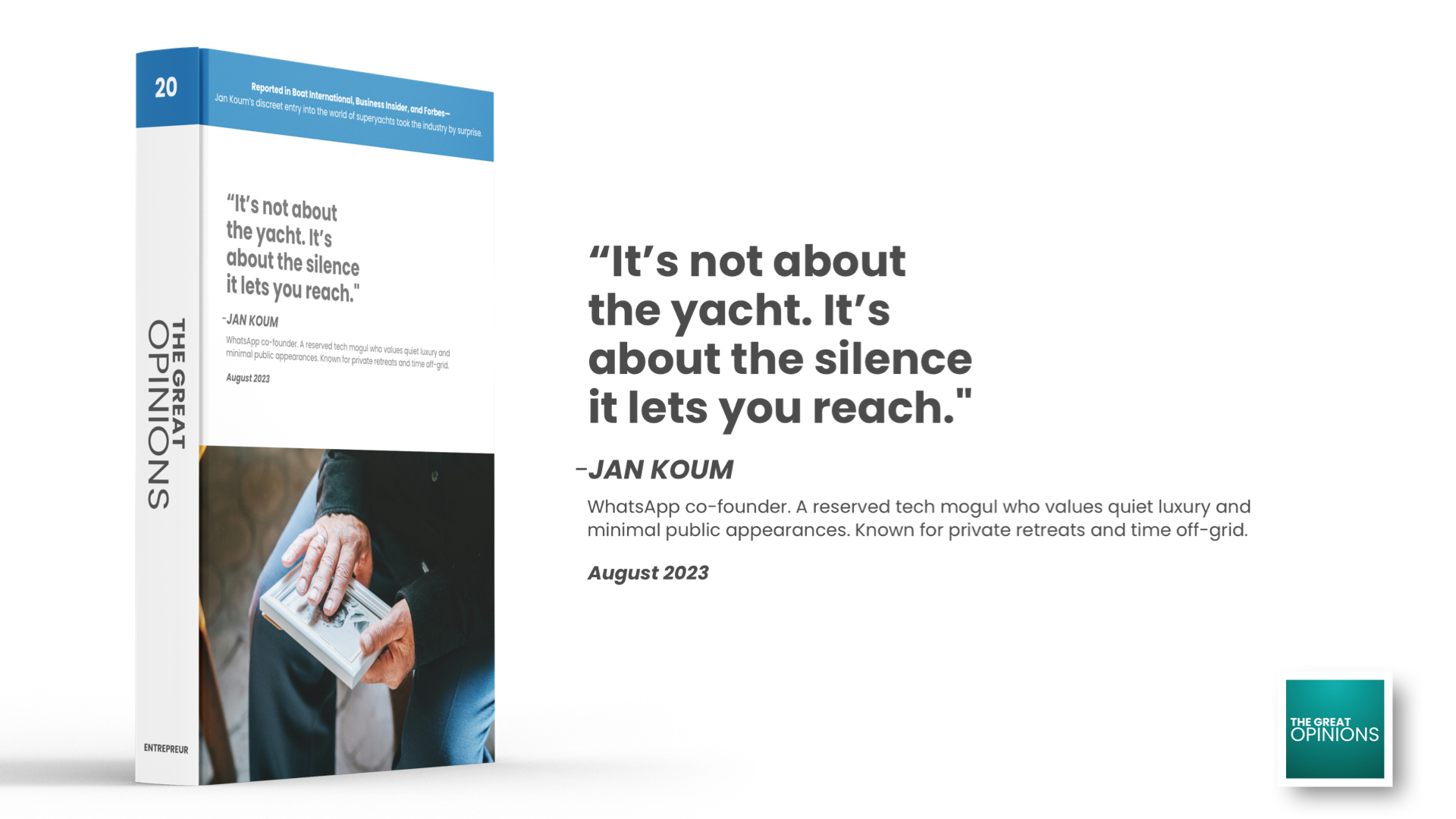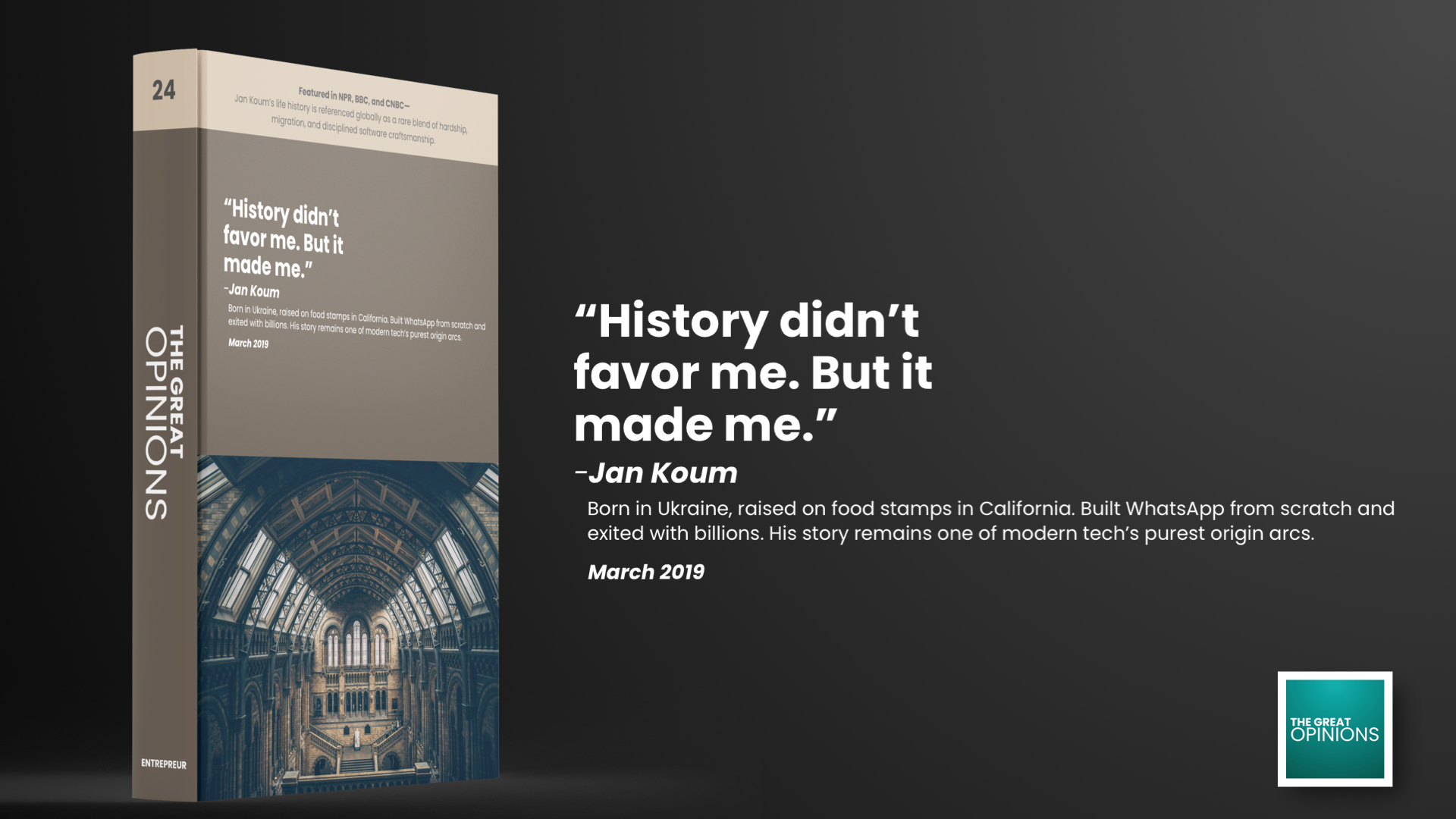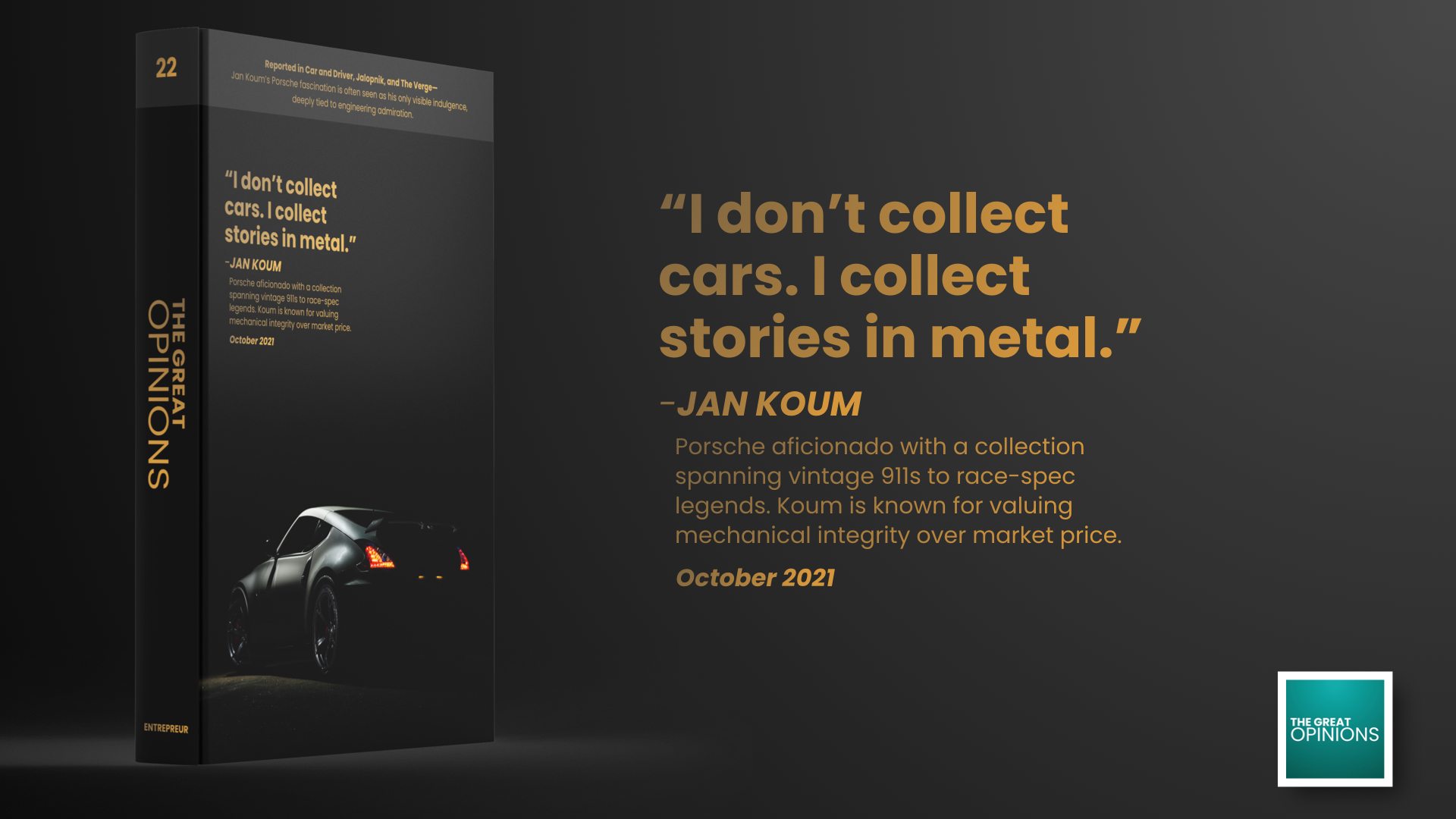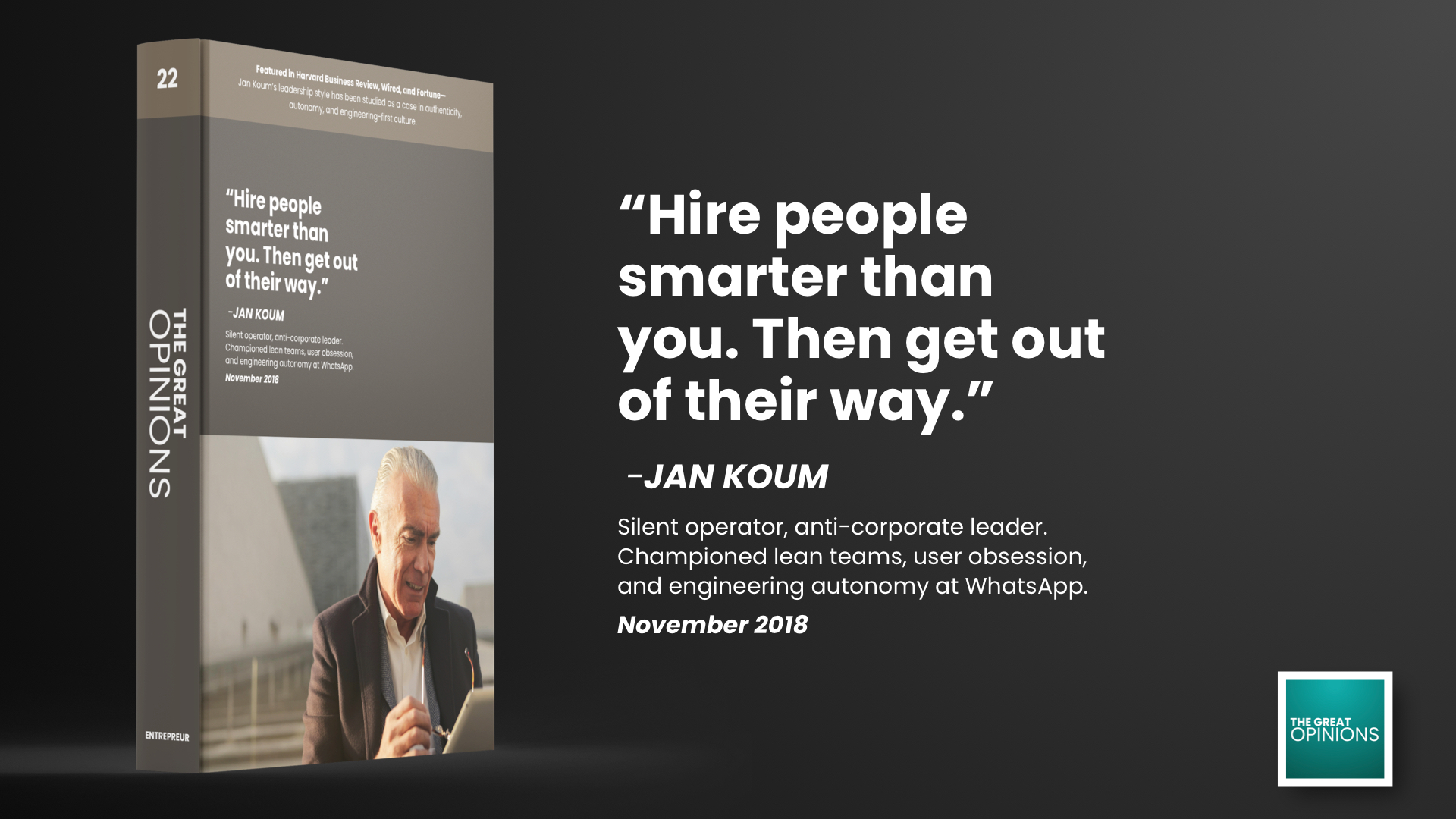A Boy Without a Phone Line: Jan Koum’s Silent Beginnings
No Ads. No Games. No Nonsense.
| Topic | Details |
| Who is Jan Koum? | Ukrainian-American computer engineer, co-founder of WhatsApp, known for building one of the world’s most used communication apps. |
| Famous For | Co-founding WhatsApp and selling it to Facebook for $19 billion, the largest acquisition in Facebook’s history at that time. |
| Famous Quote | “Respect for your privacy is coded into our DNA.” |
| What is the WhatsApp Story? | Jan Koum co-founded WhatsApp with Brian Acton in 2009. It began as a no-ads, no-gimmicks app focused purely on private, secure communication. |
| Why He Created WhatsApp | Out of frustration with intrusive tech practices and as a tool to stay connected with his mother in Ukraine. |
| When Did Facebook Acquire It? | February 2014 |
| What Was Jan Koum’s Role After Acquisition? | Continued as CEO and later as board member at Facebook until 2018, when he left due to privacy disagreements. |
| What Made WhatsApp Unique? | Simplicity, end-to-end encryption, no ads or games, minimal user data collection—radically different from most tech startups. |
| Legacy Today | WhatsApp remains the world’s most used messaging platform, symbolizing how simplicity and trust can scale globally. |
| Why This Story Matters | Jan Koum’s WhatsApp journey challenges Silicon Valley norms—building quietly, exiting gracefully, and refusing to compromise on core values. |
There are stories whispered in Silicon Valley cafés—of code, of capital, and of the courage it takes to rewrite the world from a laptop. But then, there’s Jan Koum’s WhatsApp story—a story not whispered but echoed across continents through a ping, a message, a double tick. This is not just about a startup that changed communication; this is about a boy from Ukraine who couldn’t afford phone calls—and ended up building the most used messaging service in the world.
The Call That Never Came
In the late 1980s, Jan Koum’s house in a small Ukrainian town near Kyiv didn’t have a phone line. Born into a Jewish family during a time of widespread Soviet antisemitism, he grew up in a culture of silence. His father was a construction manager, his mother a housewife. Calls to relatives were considered a luxury, reserved only for emergencies. The Cold War may have ended, but the invisible wall between Jan and the rest of the world remained.
In 1992, at age 16, he and his mother immigrated to Mountain View, California. They survived on food stamps. His mother babysat, he cleaned floors at a grocery store. Their apartment had no heater, and the occasional phone call to family back in Ukraine was still a painful, expensive affair.
For Jan, communication wasn’t just a tool—it was a lifeline denied. A wall he always wanted to break through.
A Job at Yahoo, and the First Real Message
Jan taught himself computer networking from books bought second-hand. By the late ’90s, he got a job at Yahoo—alongside Brian Acton. The two bonded over frustrations with Yahoo’s corporate culture. But more importantly, they bonded over code, trust, and the kind of anti-glamour idealism that makes the best kind of tech founders.
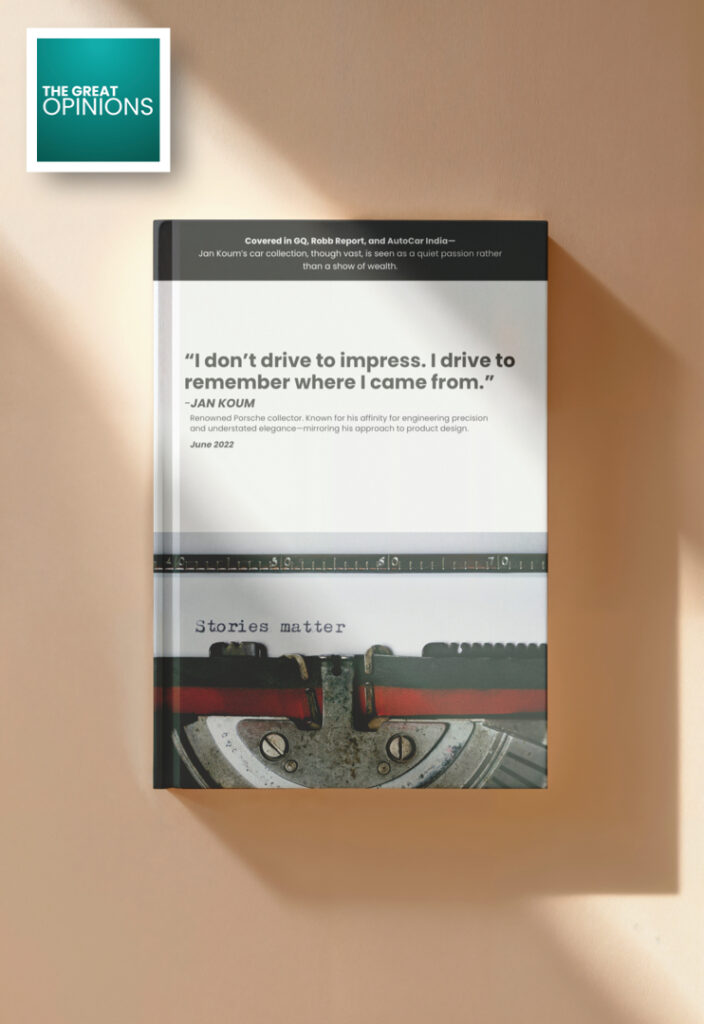
They both quit Yahoo in 2007. Tired, rich enough, and craving something more meaningful.
In 2009, while brainstorming app ideas, Jan bought an iPhone and saw the App Store’s potential. What if there were an app that let people instantly message each other—status-based, seamless, secure?
He called it WhatsApp. A pun on “What’s Up.”
A universal greeting that soon became a global utility.
From Silence to Signal: The Rise of WhatsApp
WhatsApp was born from necessity—not greed, not valuation. Jan wanted people like his younger self to never experience that communication void again.
Unlike most startups, WhatsApp refused to sell ads.
Jan once said: “When advertising is involved, you the user are the product.”
He refused to compromise privacy. That wasn’t a feature; it was a principle. WhatsApp didn’t even collect user data. Jan put privacy policy before profit.
The message: Keep it pure. Keep it sacred.
It was so stripped-down that you couldn’t even upload profile pictures initially. But people loved it. It just worked. It was light, fast, and reliable even on 2G networks. It wasn’t flashy—it was faithful.
WhatsApp spread like fire. From India to Brazil, Nigeria to Indonesia, WhatsApp became the bloodstream of everyday conversations.
By 2013, they had 400 million users.
Facebook’s Knock on the Door
In 2014, Mark Zuckerberg invited Jan Koum to dinner. They talked philosophy more than numbers. Jan wasn’t easily impressed—he had rejected job offers from Facebook and Twitter before. He wasn’t looking to sell.
But Zuckerberg made a rare promise: “We’ll let you run it your way. No ads. Total independence.”
On February 19, 2014, Facebook acquired WhatsApp for $19 billion, making it the largest acquisition in Facebook’s history, and one of the largest tech deals ever.
Jan Koum signed the deal on the doorstep of the welfare office in Mountain View where he used to collect food stamps.
He returned to that very building to sign papers, out of reverence. Not for drama, but because that place had once fed him and his mother.
The symbolism wasn’t lost on him—or the world.
A Billion Conversations, and One Last Message
After the acquisition, WhatsApp grew even faster. By 2016, it had a billion active users. Jan joined Facebook’s board. But pressure started mounting—Facebook wanted to monetize WhatsApp.
Jan, once again, said no.
But this time, it wasn’t enough.
By 2018, he resigned from Facebook. Quietly. No drama. Just a short Facebook post and a walk into the silence he had once escaped.
The Real Message
Today, Jan Koum stays out of the spotlight. He owns a massive Porsche collection. He donates to charitable causes. And he quietly supports encryption-based technologies.
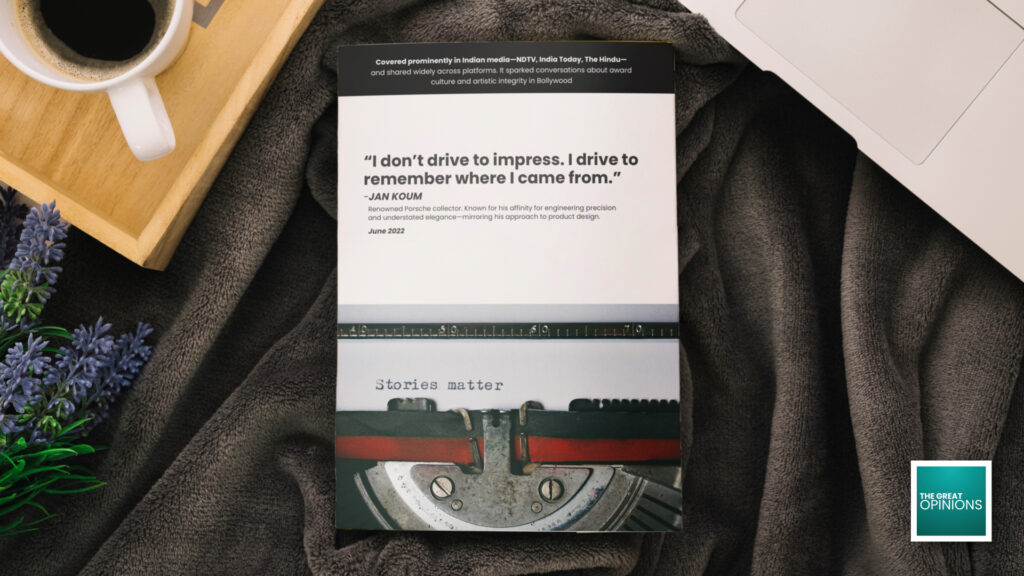
But what he built wasn’t just a messaging app.
It was a rebellion against everything Silicon Valley glorifies:
– No ads
– No data mining
– No marketing gimmicks
– Just a simple, beautiful purpose.
Jan Koum’s WhatsApp story isn’t about becoming a billionaire. It’s about solving your own deepest problem—and then letting the world benefit.
It’s about the message that never arrived—and the platform that ensured no one else had to wait again.
Sources:
https://www.forbes.com/profile/jan-koum/
https://en.wikipedia.org/wiki/Jan_Koum
